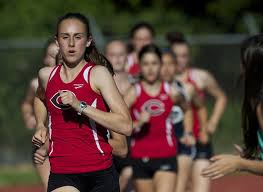WIAA passes six new amendments, including “Alexa Efraimson rule”
The Washington Interscholastic Activities Association announced six new rule changes, including one that we dare call the “Alexa Efraimson rule.”
Amendment 18.23.0 allows unattached students to compete against professional and college athletes in the sports of bowling, cross country, golf, gymnastics, swimming, tennis, track and field and wrestling.
Last October, Efraimson, a junior cross country runner at Camas High School, was ruled ineligible for about two weeks after running in the Bill Dellinger Invitational, a college cross country meet in Eugene, Ore. Efraimson appealed the decision, and the WIAA reinstated her prior to the district meet, deciding that Efraimson received some bad information from her coaches.
The previous rule prohibited high school athletes from competing in a scored college meet, as the WIAA wanted to prevent high school athletes from competing for or against college teams. As the Dellinger meet was a scored meet, the WIAA ruled Efraimson was competing against college teams.
But critics said that an unattached individual cannot compete against a team.
The argument won out in the WIAA’s decision to amend the rule. The WIAA made a clear distinction between “team” sports and “individual” sports in this ruling.
WIAA executive director Mike Colbrese said this ruling came out of concerns regarding cross country and track and field athletes.
“I think what the membership is saying is we don’t want to see teams playing against college teams or professionals,” Colbrese said. “But also they didn’t want to see … that a student who runs in Bloomsday or any other kind of running event would have to check the entire roster of participants to find out whether any of those other participants might be a collegiate athletes or even a professional athlete.”
Other rule changes:
- High school coaches will be allowed to coach a graduating senior in an All-American contest.
- The running clock rule in football was amended so that the clock will no longer stop during an official’s timeout (i.e. for a penalty ruling or a first-down measurement).
- The individual wrestling match limit during the regular season was raised to 45. An athlete may not wrestle on more than 16 dates prior to the state-qualifying tournament, but the number of matches was increased by 12.
- An athlete will be allowed to participate in a jamboree following eight days of practice, shortened from 10 days.
- Unified sports teams will now be considered separate and distinct sports, which will allow students to participate on a unified sports team and a high school sports team. Unified sports is a program of Special Olympics of Washington that combines different sports into a unified sport. This amendment allows for coaches of traditional sports to also coach unified sports, and also for athletes to participate in both.

